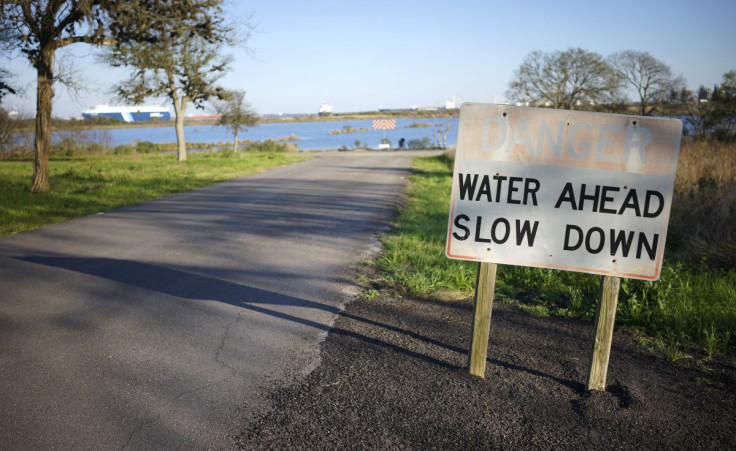U.S. To Experience As Much Sea Level Rise By 2050 As It Did In Past Century, NOAA Says

The United States is expected to experience as much sea level rise from climate change over the next 30 years as occurred in the previous century, according to a Tuesday report led by the National Oceanic and Atmospheric Administration (NOAA).
The study projects that sea levels along the U.S. coastline will rise 10-12 inches on average by 2050, leading to a "profound" increase in the frequency of coastal flooding, even in the absence of heavy rains or storms.
In addition to bouts of coastal inundation associated with storm surges, rising sea levels are leading to increasing episodes of flooding from high tides alone.
Damaging floods typical of today's sea levels, weather conditions and infrastructure are expected to occur more than 10 times as often in the next 30 years, Nicole LeBoeuf, director NOAA's National Ocean Service, said in a summary of the report.
Put another way, she said, a single flooding event likely to damage property or commerce in coastal areas of the Southeastern United States every four to five years on average will be expected to strike four to five times a year by 2050.
"I can tell you with complete confidence, that these are not the kind of changes that we grew up with," LeBoeuf, a native of the Texas Gulf Coast. "Make no mistake, sea level rise is upon us."
The study is designed as a planning tool to mitigate and adapt to rising sea levels predicted with a high degree of certainty over the next three decades, regardless of any efforts to curb greenhouse gas emissions that are warming the planet, NOAA officials said.
"This report is a wakeup call to the United States," NOAA Administrator Rick Spinrad told reporters.
Gina McCarthy, the White House national climate advisor to U.S. President Joe Biden agreed.
"This new data on sea rise is the latest reconfirmation that our climate crisis -- as the president has said -- is blinking 'code red,'" McCarthy said in a summary of the study.
The NOAA report, prepared in collaboration with several federal agencies, draws on a combination of tide gauge measurements, satellite observations and analysis from the latest report of the Intergovernmental Panel on Climate Change to determine sea level rise projections around the country.
© Copyright Thomson Reuters {{Year}}. All rights reserved.





















